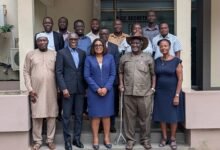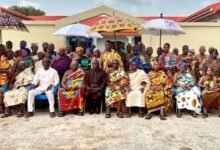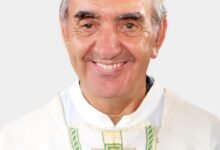
THE Speaker of Parliament, Professor Aaron Mike Quaye, has ‘blocked’ the Office of Special Prosecutor from having access to the Member of Parliament for Bawku Central, Mahama Ayariga, between Tuesdays and Fridays in the ongoing criminal trial of the legislator.
The anti graft agency, however, has Mondays, Saturdays and Sundays or when the House is on recess to put Mr Ayariga in the dock to answer questions in the matter brought against him, the Speaker said.
In a landmark ruling in Parliament yesterday, Speaker Oquaye said releasing the Bawku Central MP to the judicial process on days the House sits would be breach of the 1992 Constitution and a bad precedent for Ghana’s democracy.
Professor Oquaye’s ruling followed a complaint made to him by the accused who is standing trial for alleged tax evasion and abuse of office.
In his complaint to the Speaker, Mr Ayariga said immunities granted lawmakers under the Constitution could not allow him avail himself to the judicial process on Parliamentary sitting days as same would interrupt his legislative duties.
Article 117 of the 1992 Constitution states that “Civil or criminal process coming from any court or place out of Parliament shall not be served on, or executed in relation to, the Speaker or a member or the clerk to Parliament while he is on his way to, attending at or returning from, any proceedings of Parliament.”
Article 122 adds that: “An act or omission which obstructs or impedes Parliament in the performance of its functions or which obstructs or impedes a member or officer of Parliament in the discharge of his duties, or affronts the dignity of Parliament or which tends either directly or indirectly to produce that result, is contempt of Parliament.”
In this regard, Mr Ayariga said “allowing me on Tuesday (yesterday) when the House is in session will obstruct and prevent me from being able to carry out my duties here as a sitting Member of Parliament and whoever seeks to do that will be acting contemptuously of Parliament,” as he invited the Speaker to intervene in the matter.
After suspending proceedings in the House for an hour, Speaker Oquaye returned and ruled that the Bawku Central MP, though not above prosecution, was immune from same on Parliamentary sitting days as he advised the judiciary to consider non Parliamentary sitting days for the prosecution of Mr Ayariga.
Citing a precedent where a sitting MP, Dan Abodakpi faced trial, Speaker Oquaye said “the court hearings were heard on Mondays [when Parliament does not sit] and recess periods.”
This arrangement, Speaker Oquaye noted, allowed for the trial to go on whilst allowing for the former Trade Minister to undertake his parliamentary duties.
During the first republic, Professor Oquaye recollected that, the Prevention Detention Act was applied to detain opposition MPs only for them to absent themselves from the House for 14 days so as to be dismissed from Parliament.
“This is dangerous for human rights and democracy as criminal charges and trials could be employed to prevent the people’s representatives from representing them,” he observed.
For example, he said, “If 20 opposition MPs at anytime should be put before court by a regime which aims at destroying representative government, what should we do? Supposing trials are held all over the place; Bawku, Tumu, Enchi, Aflao, among others, can Parliament function? What if arrangements before court are timed just before crucial votes in the House?”
He envisaged that “someday, a President’s party will be in the Minority” and should such a President be allowed to use certain strategies to cripple the Majority through trials, representative governance would be defeated.
He said in the wisdom of the framers of the Constitution, the immunities granted lawmakers were to ensure that any agencies acting on behalf of the executive or the judiciary do not obstruct the lawful exercise of Parliamentary duty.
The immunities, the Speaker said, do not exist for personal benefits of the Speaker or individual members but rather to safeguard the freedom, the authority and dignity of Parliament calling on the court to consider days that Parliament do not sit or recess periods to enable Mahama Ayariga represent the good people of Bawku Central effectively.”
BY JULIUS YAO PETETSI







